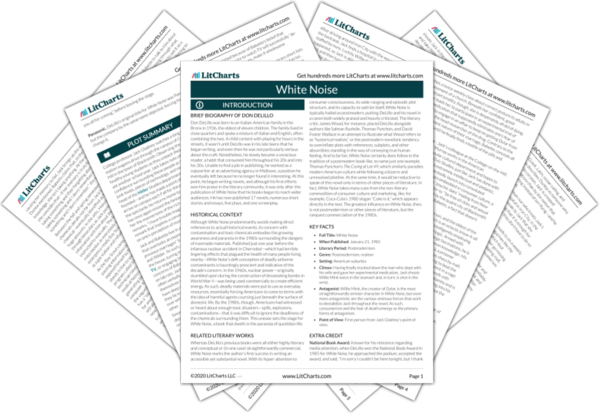More than any other figure in the book, Hitler stands for authority in Jack’s eyes. For one thing, his stature as the most feared man in history lends him a gravitas toward which Jack aspires, somehow finding a way to disregard questions of good and evil in the interest of focusing solely on the idea of power. Furthermore, Hitler represents stability for Jack, since his life existed in the past. By building his career on studying this long-deceased dictator, then, Jack creates a constant in his own life; when Tweedy Browner asks, “How is Hitler?” he responds, “Fine, solid, dependable.” As such, Hitler comes to symbolize one of the few things Jack feels he can actually count on in a life of uncertain anxieties. At the same time, Hitler also stands for Jack’s insecurities, since, despite his dominance over the study of this particular historical figure, he remains unable to speak German, rendering his knowledge of Hitler’s life incomplete. He finds himself ashamed of this intellectual shortcoming, a feeling that makes him feel fraudulent and inauthentic. This is the same kind of obsession with authority and control that makes him change his name to J. A. K Gladney and gain weight in order to “‘grow out’ into Hitler.” Just as Jack invests himself in Hitler’s image rather than his horrific actions, he throws himself into his own outward appearance in order to compensate for his insecurities and shortcomings.
Hitler Quotes in White Noise
[…] it’s not a question of greatness. It’s not a question of good and evil. I don’t know what it is. Look at it this way. Some people always wear a favorite color. Some people carry a gun. Some people put on a uniform and feel bigger, stronger, safer. It’s in this area that my obsessions dwell.










